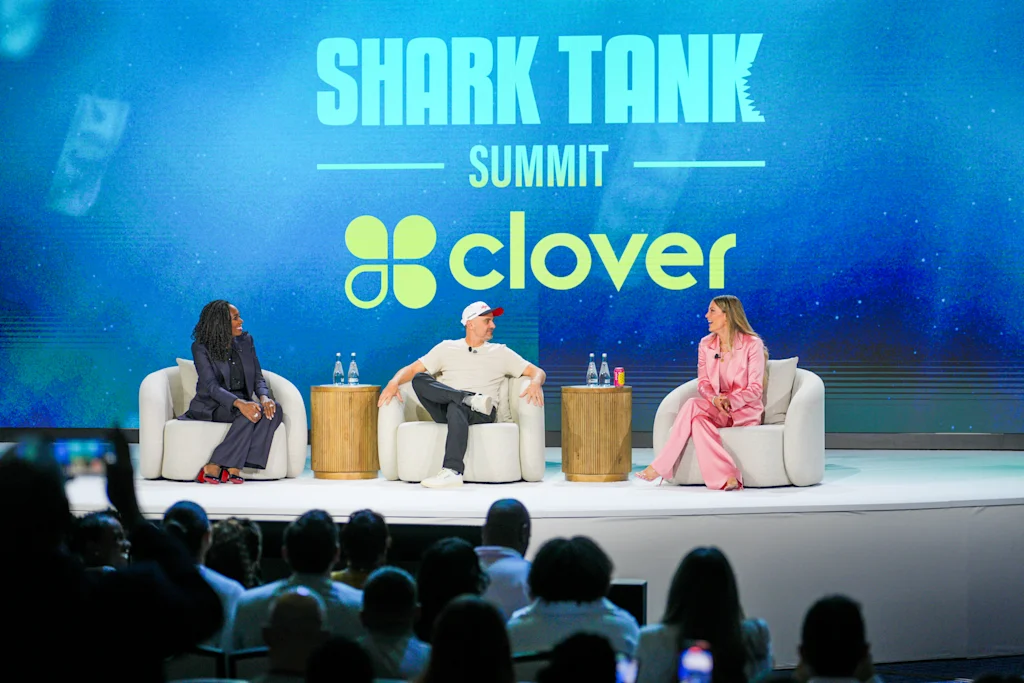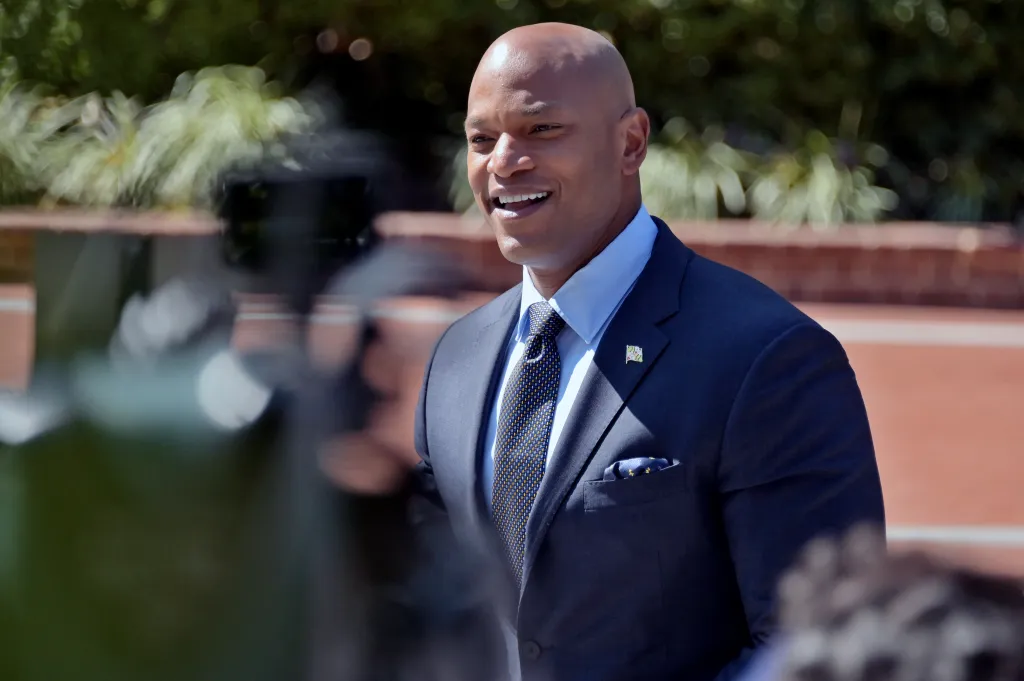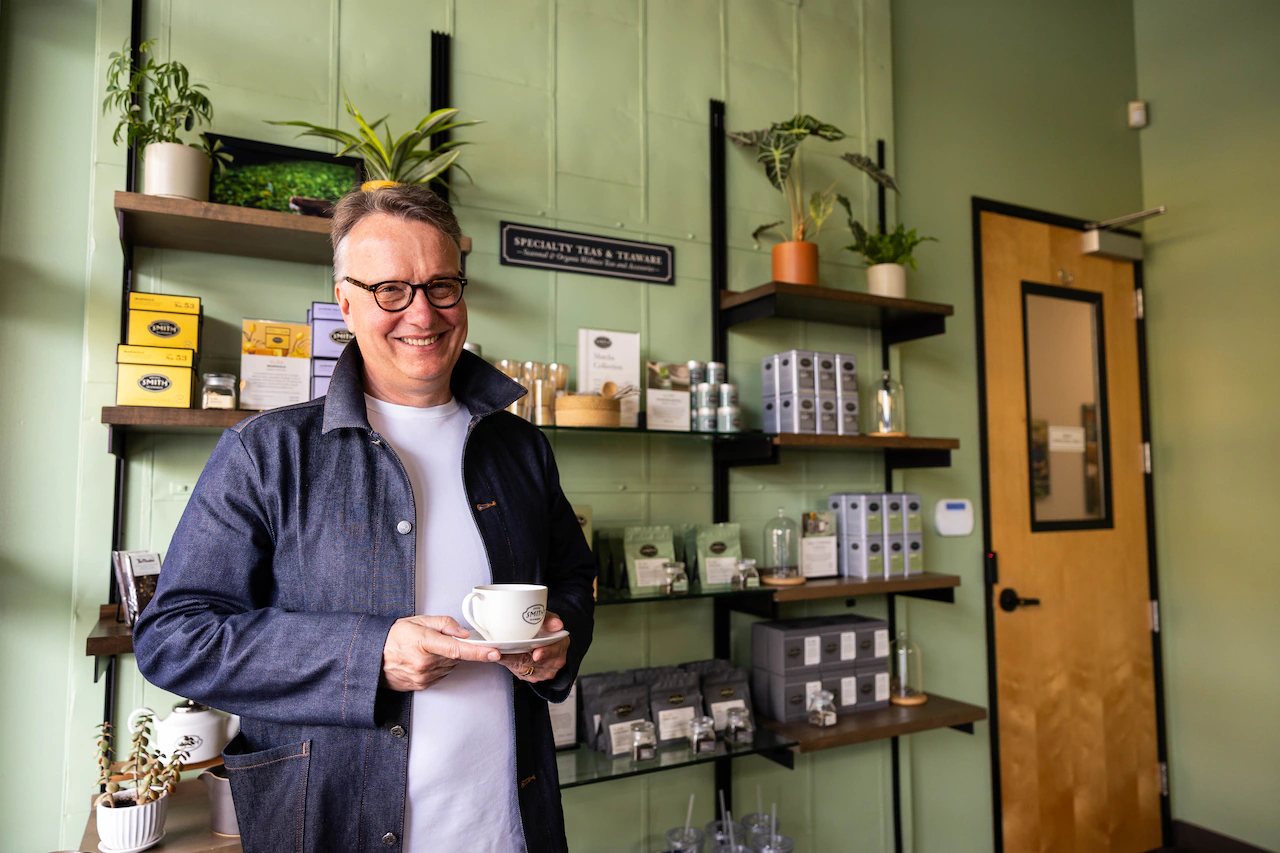
Given the plethora of media platforms competing for customer attention, it can feel tougher than ever for entrepreneurs to break through all the noise. Branding is part art, part science, and all about connection, as panelists discussed during a session at Clover’s Shark Tank Summit on September 30.
Allison Ellsworth, co-founder of prebiotic soda company Poppi, and Gary Vaynerchuk, founder and CEO of digital creative agency VaynerMedia, shared how they tap into the cultural zeitgeist for engagement that drives growth.
Marketing is how people come to see you. Branding is how people come to trust you.
Some people conflate marketing and branding, but they are distinct operations—each with fundamental importance to the business.
“Without marketing no one sees you, and without branding no one trusts you,” Vaynerchuk said. Branding is more than a logo or a color scheme: It’s the soul of a company that aims to resonate with consumers on a deep level.
For Ellsworth, a mismatch in branding meant she had to reimagine her beverage company from the ground up. She pitched Mother Beverage on “Shark Tank” in 2018 as a sparkling apple cider vinegar drink, created in her kitchen sink and packaged in glass bottles with what she called “a clean-girl aesthetic.’” While the brand secured $400,000 from shark Rohan Oza, they faced lots of criticism from the panel.
They spent the subsequent nine months transforming Mother Beverage into Poppi: a prebiotic soda brand with peppy, brightly colored cans that scream fun. “At the end of the day, people drink soda because it tastes good,” Ellsworth said. “What looks juicier than colorful, bright cans with glistening and ice? That’s soda—not some minimalist clean girl can.”
The revamp paid off, literally: Poppi sold to PepsiCo for $1.95 billion earlier this year.
Use the 80/20 rule to take marketing risks and tap into cultural moments.
The most innovative brands understand that marketing cannot simply play it safe all the time; they must be bold and stay culturally relevant, the panelists agreed.
Ellsworth’s strategic approach is reminiscent of the Pareto Principle: “80 percent of our marketing budget was planned, but we always left 20 percent for spontaneous, culturally relevant moments.”
That 20 percent investment has led to some of Poppi’s most memorable and impactful marketing wins. For example, when a meme related to a “Love Island USA” contestant nicknamed Amaya Papaya went viral on social media, the company quickly created a limited-edition papaya Poppi flavor. “We moved at the speed of culture,” Ellsworth said.
Vaynerchuk emphasized that the ability to be nimble can serve as a major benefit for entrepreneurs, who face a “David and Goliath” challenge against huge corporations. “You don’t need to look at the big companies to decide what to do, because they’re different than you,” he said. “They have scaled retail distribution. They have unlimited funds compared to you. You’ve got to play a different game.”
It’s the game Poppi played, and Vaynerchuk recommended other entrepreneurs take note.
“Cultural speed fuels brand loyalty,” he said. “Branding that bites isn’t about having the biggest checkbook. It’s about finding that cultural connection during the moments that matter to the consumers you’re trying to get to buy your brand.”
Don’t let your ego get in the way of growth.
Both panelists discussed the importance of balancing confidence with humility, albeit in different ways. Ellsworth approached the topic from the point of view of entrepreneurs who struggle to relinquish control, and she shared a powerful mantra for them: “Don’t let your ego get in the way of growth.”
For Ellsworth this represents the power of delegation. She encouraged entrepreneurs to be open to bringing in new expertise and fresh viewpoints. Recognize that you don’t have to play every single role, and you’ll actually stunt your own growth if you try.
“You can allow people to come in and help you,” Ellsworth said. “Find out what your superpower is and build a team around you to help you get your best.”
For Vaynerchuk, leaving ego out means remaining obsessed with and devoted to the community that helped you grow. He shared a comment that served as both a call-out and a call to action. “I am blown away by how many of you posted something for your business yesterday, got seven comments and you replied to none,” he said. “Community is like working out—meaning you can’t talk about it, you can’t read about it, you can’t pontificate about it. You either went to the gym this morning or you did not. And if you do it, you see results.”



